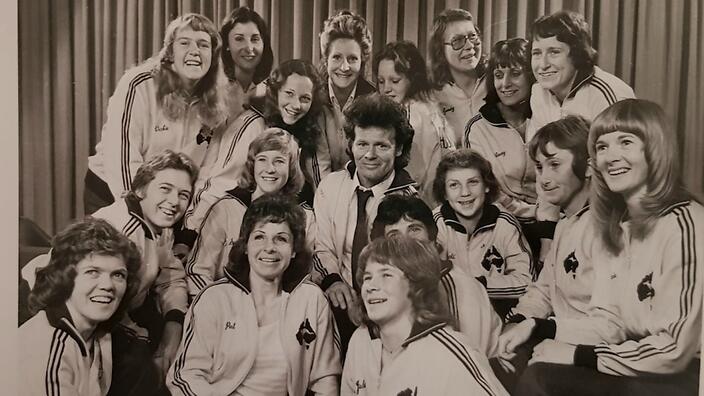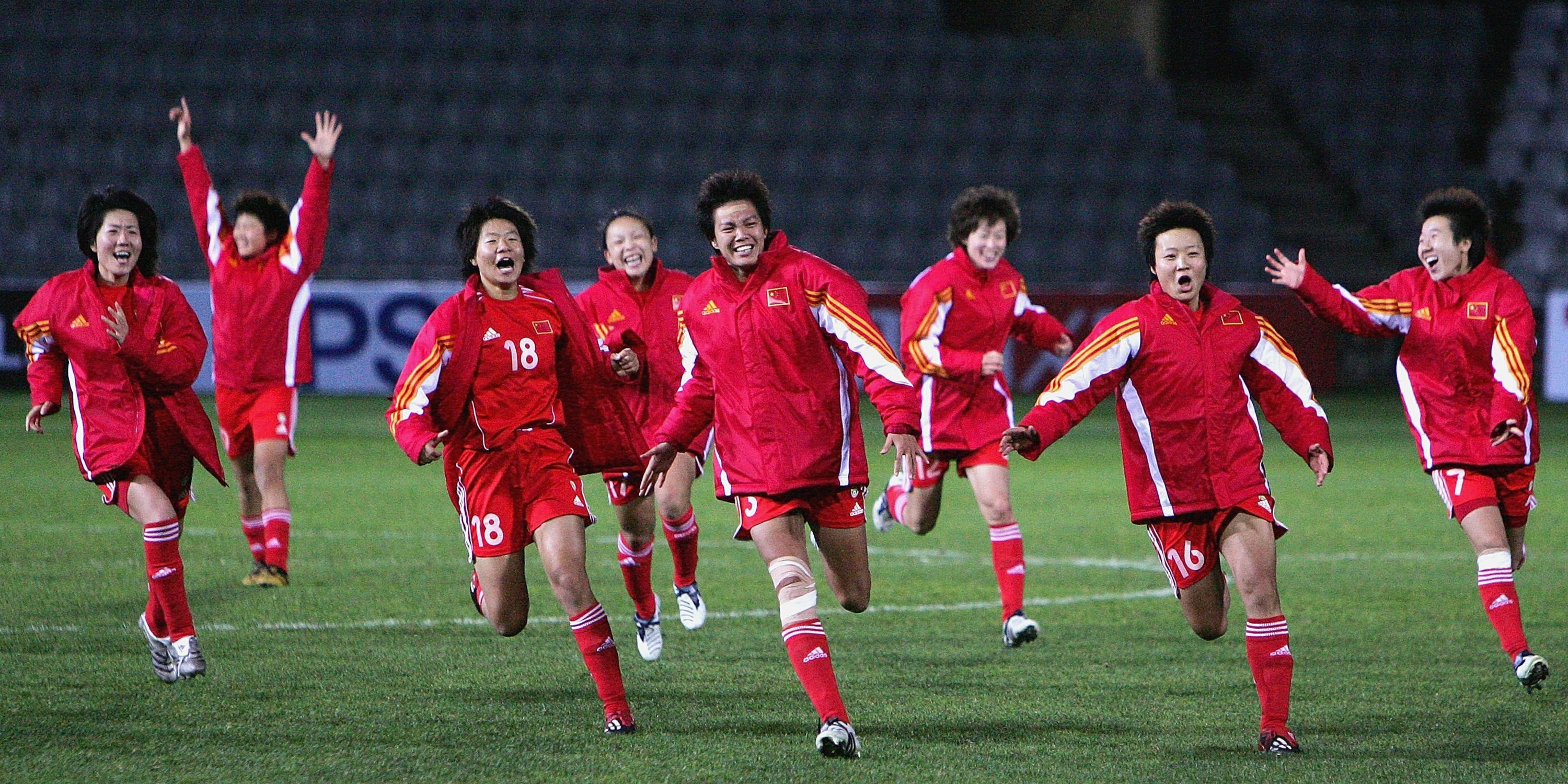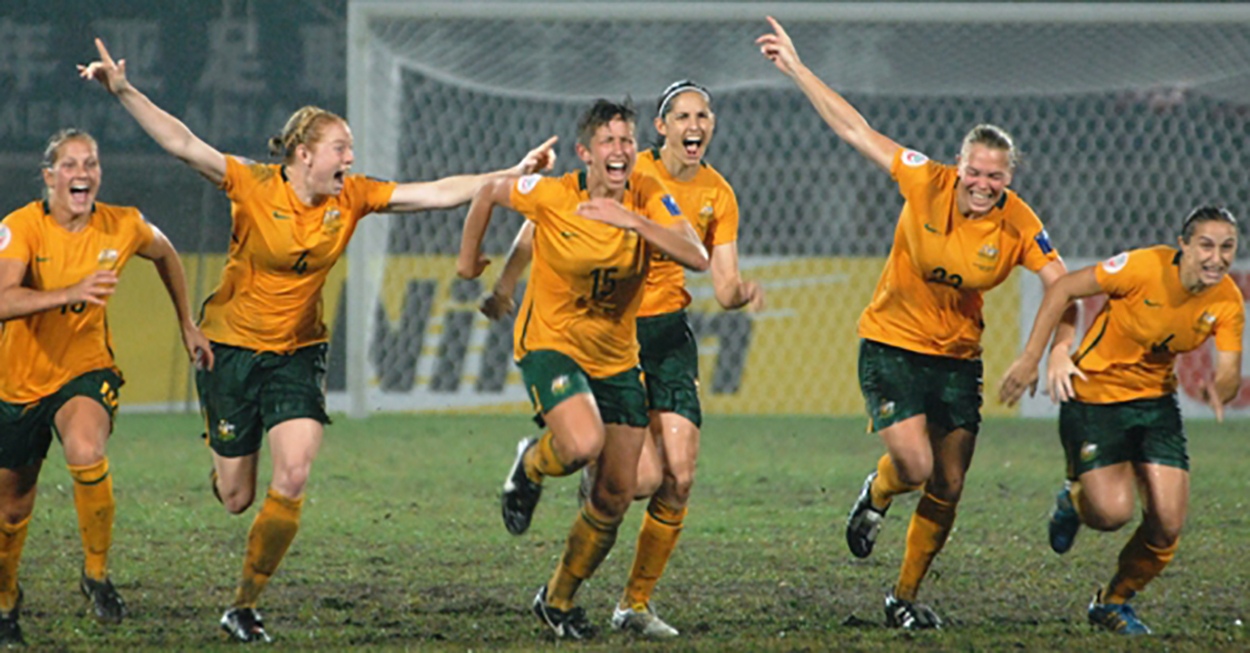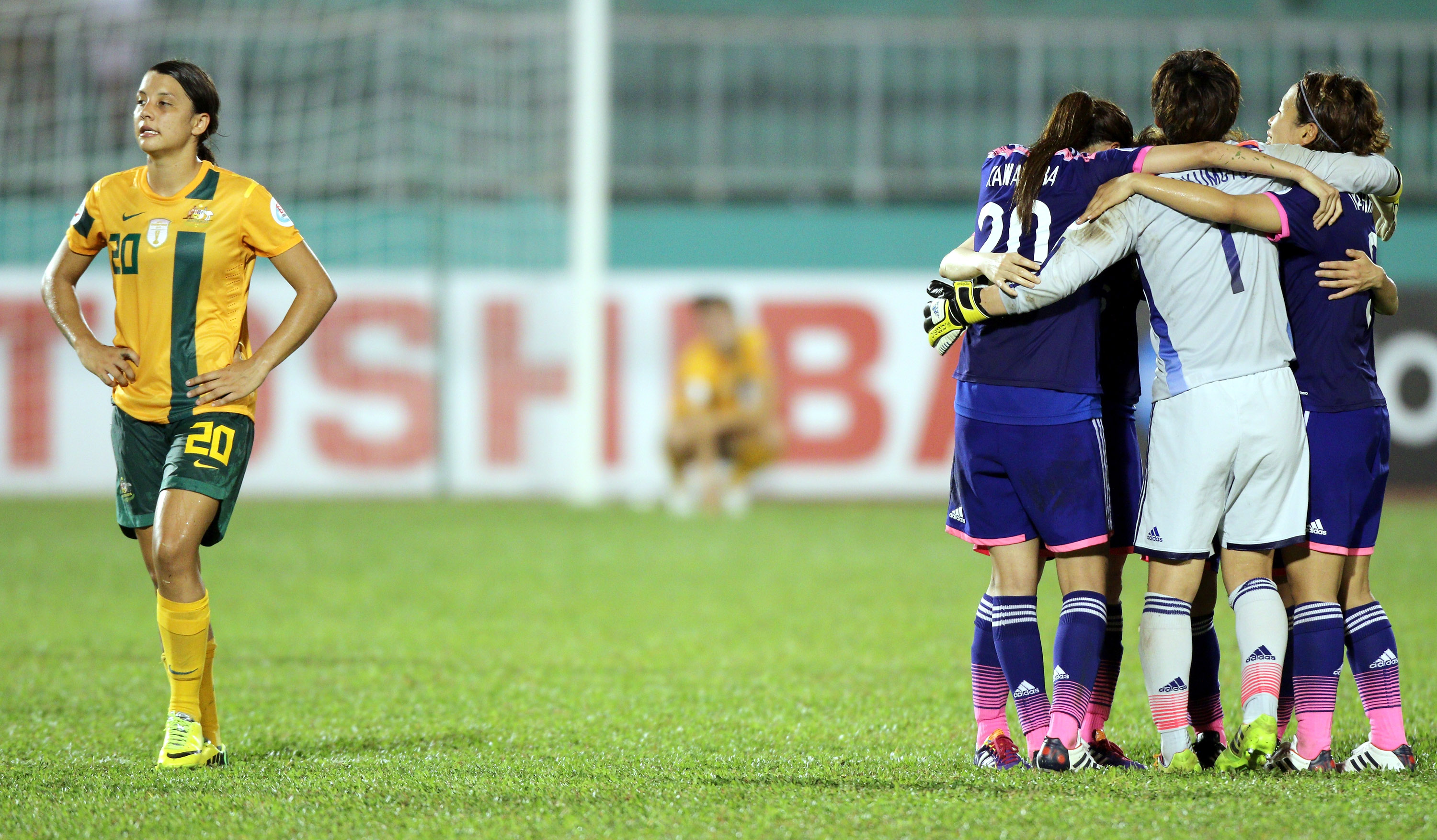As the Commbank Matildas prepare for their eighth AFC Women's Asian Cup in January, let's look back at the side's most memorable moments, within Asia's premier tournament
The AFC's month of football has been the scene for many Commonwealth Bank Matildas' famous moments, from the trailblazers to the champions. Although many eyes may already be fixed on the FIFA Women's World Cup in 2023, for coach Tony Gustavsson and his side, the focus is very much on India and the world's oldest female competition, with the team hungry for silverware.

The Originals 1975
The first edition of the tournament in Hong Kong 1975, almost didn't see Australia participate at all. The national side was in its infancy, with the federation electing for champion side St George, in Sydney's south, to represent the nation.
Despite the challenges to enter, Hong Kong saw the emergence of a national team immortal with 14-year-old Julie Dolan taking the pitch in each of the side's group games and semi-final. The teenager managed to score twice, finishing as Australia's top scorer for the cup.
After a brave group stage escape, which involved a victory over Singapore in their final match to help secure passage to the semi-finals, the Matildas led by skipper Pat O'Connor were matched with the tournament's favourites and Trans-Tasman rivals New Zealand. The Kiwis may not possess a great record against Australia recently, but in Hong Kong, the team in black and white provided too much firepower, defeating the trailblazing Aussies 3-2.
New Zealand may have been lifted the first Asian Cup, but the match would eventually spark a national side, one that would go on to dominate the tournament for decades afterward.

Adelaide Agony 2006
After 27 years of Asian Cup absence, the Commonwealth Bank Matildas returned to the continental cup in 2006, along with hosting rights for the 15th edition. A generation of stars including Sarah Walsh, Kate Gill, Alicia Ferguson and a young Lisa De Vanna headlined the Australian side, that many tipped to lift the trophy on the 30th of June.
De Vanna and Munoz topped the scoring charts, while eight different players scored over 5 matches, as the Australians progressed through their group. A stoic Japanese side were no match for the green and gold in the semi-final, with the 2-0 victory against Asia's strongest nation leading many to assume that the Asian Cup was heading down under for the first time.
The script was being written early in the final, with two first-half goals from Peters and Munoz giving Tom Sermanni's side a firm grip on the title. A Chinese double in the last 20 minutes squared the ledger, denying the Australians any early celebration, with penalties required to split the sides.
Despite the support from a strong Adelaide crowd, it was the Chinese takers that kept their cool in the end, regaining the cup and leaving the Commonwealth Bank Matildas waiting further, for their first piece of silverware.

Chengdu Champions 2010
Good things come to those who wait, and when it comes to the Asian Cup, our girls have been incredibly patient.
Four years after the Chinese broke our hearts in Adelaide, it was their turn to host, and our turn to flip the script. The same core from the 2006 tournament returned for the 2010 edition, with a few young prodigies thrown in for Sermanni to pick from. Teenage stars Sam Kerr, Emily Van Egmond, Kyah Simon, and Tameka Yallop (then Butt) played at least three matches in the five game tournament.
After a 1-0 loss to rivals China in the group stage, it would've been easy for the players to believe history was repeating itself. A semi-final against the Japanese saw another familiar roadblock for the Commonwealth Bank Matildas. However, coach Sermanni strayed away from the attacking style that the Australians love to play, instead setting his side up to soak all the Japan pressure and attack on the counter.
A 45th minute strike from Kate Gill would prove to be the difference, as Australia defended their way to victory in the sticky heat of Chengdu. A victory to North Korea in the second semi-final over hosts China, perhaps denied the Aussies their revenge for 2006, but the team set themselves for a second shot at silverware.
An early opener by now captain Sam Kerr repaid the coach's faith in the final, who made the risky decision to start a youthful starting side against the North Koreans. However, the nightmares of 2006 would return, with the North Koreans equalising late on, sending the match to another shootout.
What was the difference this time around? Perhaps the team had learnt and matured from 2006, or perhaps the new crop of young stars gave them the edge. Whatever you put it down to, it was evident that the team was ready. Five penalties scored without a single miss, including the winner from 19-year-old winger Kyah Simon, sent the green and gold camp into raptures.

Birth of a rivalry
Recent appearances at the AFC Women's Asian Cup have seen moments of celebration and optimism for our Commonwealth Bank Matildas. The 2014 and 2018 editions came during times of transition, with a group of world class talent developing to the forefront of Asian football. Despite this, the Australians have fallen one game short on each occasion, tasting defeat to powerhouse nation Japan in the final of both tournaments.
In Vietnam 2014, the Japanese came into the tournament heavy favourites having lifted the World Cup just three years earlier. Despite this, Australia remained dogged and determined in the final, with the world champions scrapping past the green and gold 1-0 in Ho Chi Minh City. For then-coach Alen Stajcic's side, the match was a confidence boost, with the Commonwealth Bank Matildas having proved they can match it with the world's best.
In Jordan 2018, the Australians had grown in stature, having defeated the United States a year earlier, along with consecutive Tournament of Nations victories. Japan and Australia met again in the tournament's decider, with Stajcic's team possessing the clearest chances on goal, before a 82nd minute winner by Yokoyama sealed a shock victory for the Samurai Blue.

Two consecutive second place finishes against the same opponent is reminiscent to the heartbreak felt for those involved with the 2006 campaign. As India 2022 approaches however, the current group have the chance to replicate the elation of their first Asian Cup triumph, with the Japanese very much in the sights of Tony Gustavsson and his troops.
